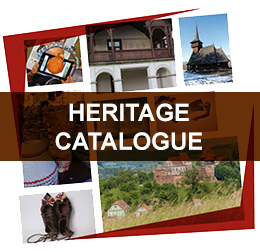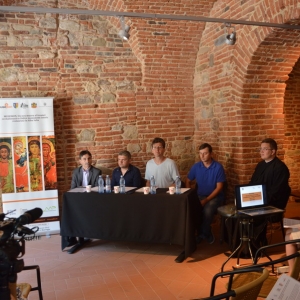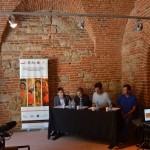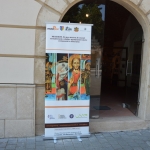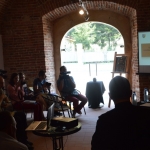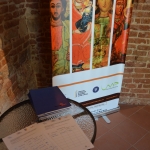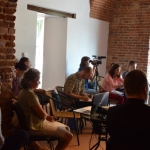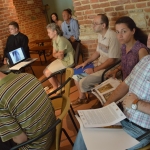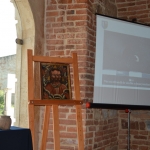
Latest news all news
-
16 Nov. 2017
Results brochure PA16/RO12 -
22 Aug. 2017
Facts regarding the Aromanian heritage -
17 Aug. 2017
Fortified churches (video)
Public procurement
- More information will be available soon
Follow us on Facebook
Press conference upon completion of archaeological research, 14 July 2016
On 14 July 2016, a press conference was organized during the project “MUSEIKON. New Icon Museum revitalizes a restored heritage building in Alba Iulia”, implemented by Alba County Council and financed through EEA Grants, Programme PA16/RO12. Started in February 2016, the archaeological research conducted at Museikon revealed unexpected relics of historical importance able to rewrite an important page in the history of Transylvania, that of Roman domination in Dacia, and contributes significantly to the knowledge of an so far quite obscure area from the architectural ensemble of Alba Iulia.
Information on this building were, until now, few and incomplete. It was only known that the building served continuously from the first half of the XVIIIth century until mid XXth century as a military hospital and then as a Neurological and Neuropsychiatry Hospital.
Due to archaeological research, the building can now be recognized on the map of architect Visconti, the designer of the fortress Alba Carolina. Architect Visconti created in 1711 the first detailed mapping of the realities inside the walls of the old medieval fortifications.
Following works carried out on the west façade of the building, it was unveiled part of the west fortified wall of the Roman castrum Apulum, which was built out of stone during Emperor Hadrian. Part of the historical building is thus built on the Roman wall of the medieval building, which was partially demolished by Austrians during the redevelopment of the old architectural ensemble and its transformation into a hospital.
Findings in the cellar brought to light Roman sewers, which were located along the patrol road - via sagularis.
Behind the new building, built in the 1980s, a handmade stone oven and pot were found, both dating from the mid Xth century.
Archaeological findings will be valorized and introduced into the exhibition circuit as a second cultural offer of the new museum.
Video materials


